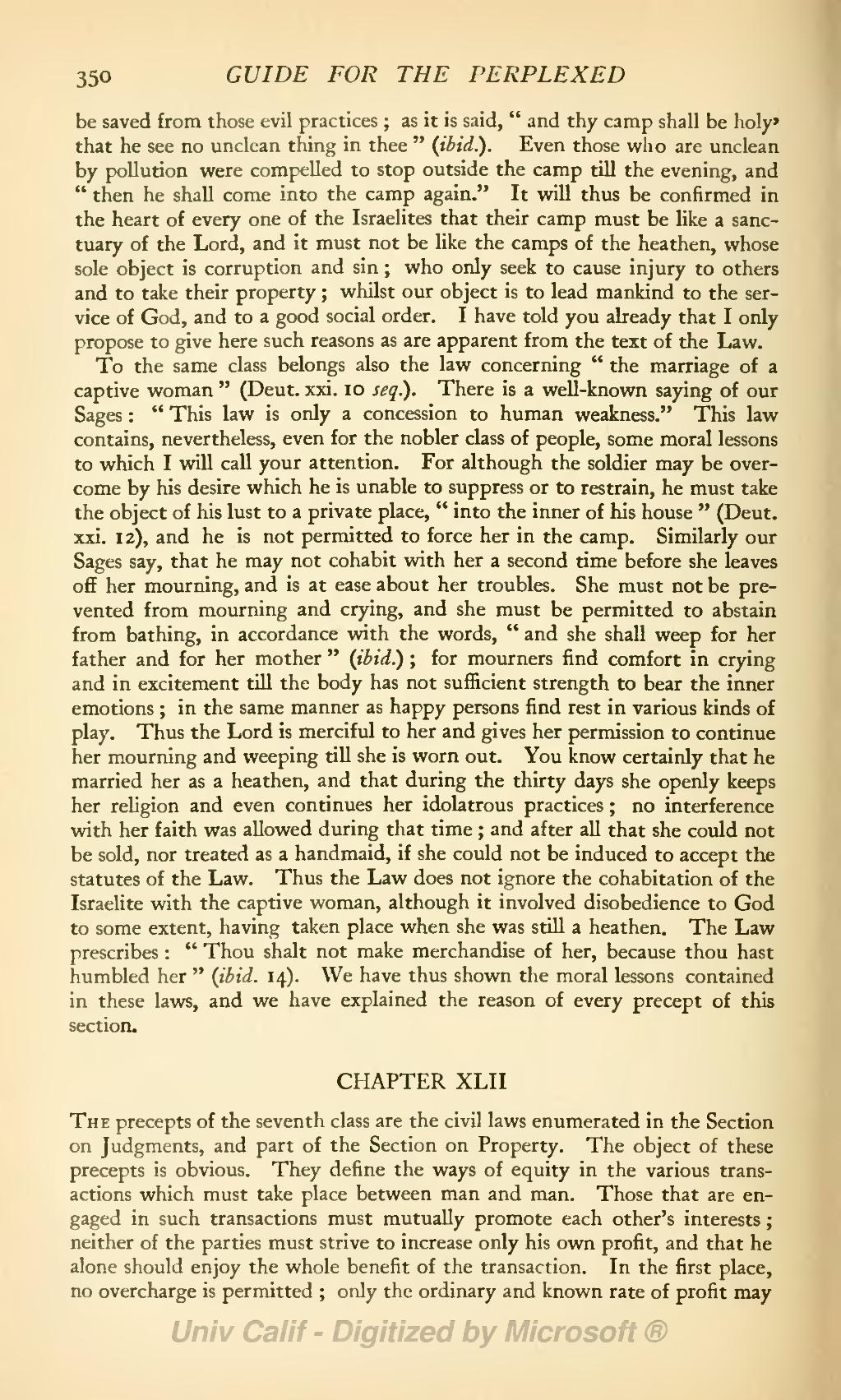saved from those evil practices; as it is said, "and thy camp shall be holy, that he see no unclean thing in thee" (ibid.). Even those who are unclean by pollution were compelled to stop outside the camp till the evening, and "then he shall come into the camp again." It win thus be confirmed in the heart of every one of the Israelites that their camp must be like a sanctuary of the Lord, and it must not be like the camps of the heathen, whose sole object is corruption and sin; who only seek to cause injury to others and to take their property; whilst our object is to lead mankind to the service of God, and to a good social order. I have told you already that I only propose to give here such reasons as are apparent from the text of the Law.
To the same class belongs also the law concerning "the marriage of a captive woman" (Deut. xxi. 10 seq.). There is a well-known saying of our Sages: "This law is only a concession to human weakness." This law contains, nevertheless, even for the nobler class of people, some moral lessons to which I will call your attention. For although the soldier may be overcome by his desire which he is unable to suppress or to restrain, he must take the object of his lust to a private place, "into the inner of his house" (Deut. xxi. 12), and he is not permitted to force her in the camp. Similarly our Sages say, that he may not cohabit with her a second time before she leaves off her mourning, and is at ease about her troubles. She must not be prevented from mourning and crying, and she must be permitted to abstain from bathing, in accordance with the words, "and she shall weep for her father and for her mother" (ibid.); for mourners find comfort in crying and in excitement till, the body has not sufficient strength to bear the inner emotions; in the same manner as happy persons find rest in various kinds of play. Thus the Lord is merciful to her and gives her permission to continue her mourning and weeping till she is worn out. You know certainly that he married her as a heathen, and that during the thirty days she openly keeps her religion and even continues her idolatrous practices; no interference with her faith was allowed during that time; and after all that she could not be sold, nor treated as a handmaid, if she could not be induced to accept the statutes of the Law. Thus the Law does not ignore the cohabitation of the Israelite with the captive woman, although it involved disobedience to God to some extent, having taken place when she was still a heathen. The Law prescribes: "Thou shalt not make merchandise of her, because thou hast humbled her" (ibid. 14). We have thus shown the moral lessons contained in these laws, and we have explained the reason of every precept of this section.
CHAPTER XLII
THE precepts of the seventh class are the civil laws enumerated in the Section on judgments, and part of the Section on Property. The object of these precepts is obvious. They define the ways of equity in the various transactions which must take place between man and man. Those that are engaged in such transactions must mutually promote each other's interests; neither of the parties must strive to increase only his own profit, and that he alone should enjoy the whole benefit of the transaction. In the first place, no overcharge is permitted; only the ordinary and known rate of profit may be
